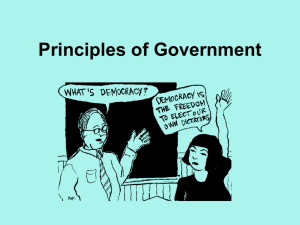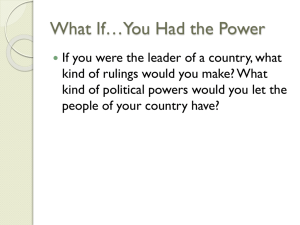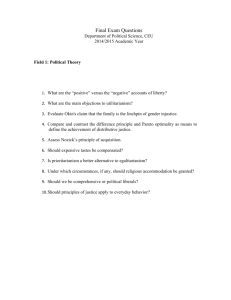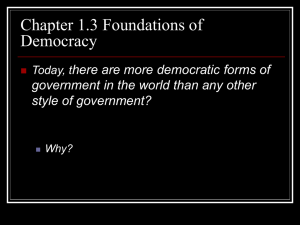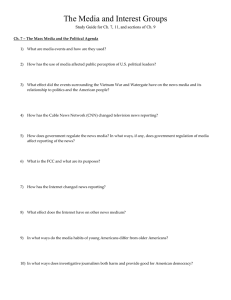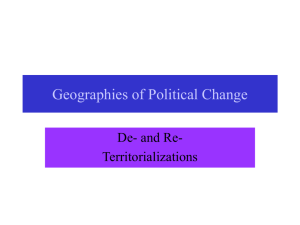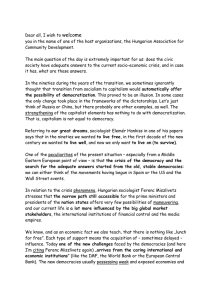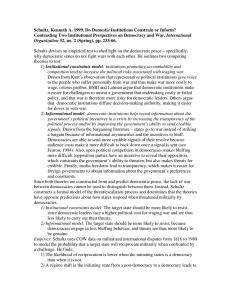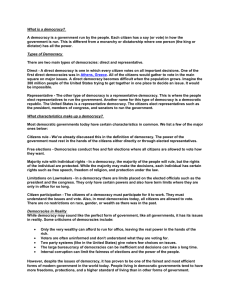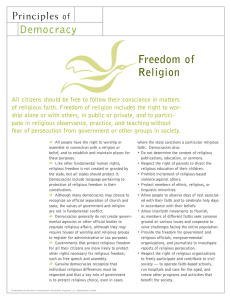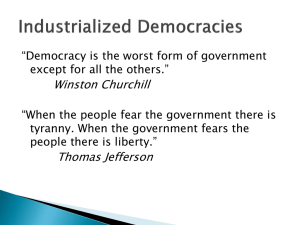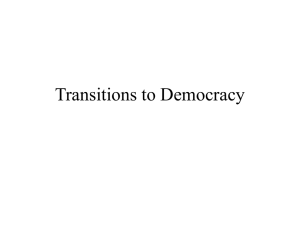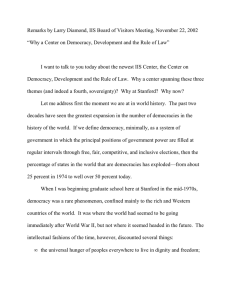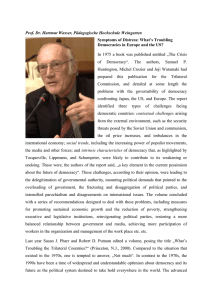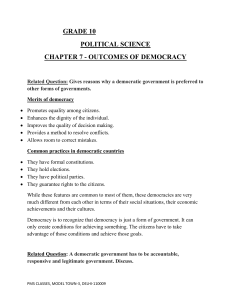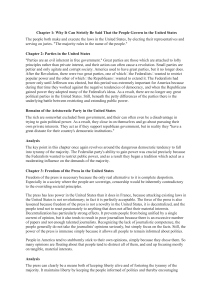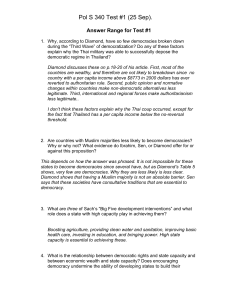A Sociological Compass
advertisement
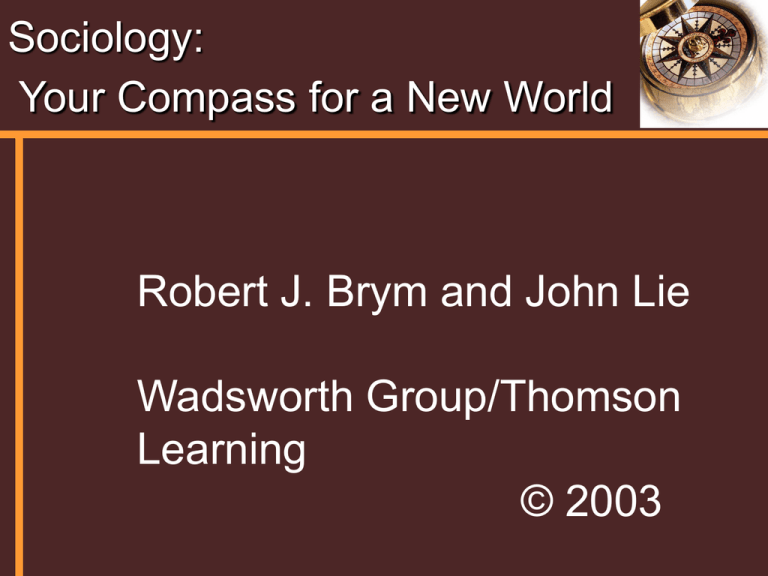
Sociology: Your Compass for a New World Robert J. Brym and John Lie Wadsworth Group/Thomson Learning © 2003 Chapter 11 Politics Power and Democracy The Level of Democracy in a Society Depends on How Power Is Distributed. Power Is the Ability to Control Others, Even Against Their Will. When Power Is Concentrated in the Hands of Few People, Society Is Less Democratic. Authority Authority, or Legitimate Power, May Be One of Three Types Traditional Charismatic Legal-rational State and Civil Society The State Is the Set of Institutions That Specializes in the Exercise of Power and Authority Civil Society Is the Private Sphere of Social Life. To a Degree, Citizens Control the State Through Political Parties Lobbies The Mass Media Public Opinion Social Movements The Institutions of State and Civil Society STATE Executive (e.g., President: initiates laws, ensures their implementation) Legislature (e.g., Congress: makes laws) Bureaucracy (implements laws) Judiciary (courts: interpret laws) Coercive Apparatus (police, military: enforce laws) Democracy involves two-way control. CIVIL SOCIETY Political Parties Lobbies Mass Media Public Opinion Social Movements Pluralism Pluralists Correctly Note That Democratic Politics Is About Negotiation and Compromise They Fail to Appreciate That Economically Advantaged Groups Have More Power Than Disadvantaged Groups Percent of Political Activities Undertaken by Rich and Poor Americans, 1988 (in %) Percent 40 R = rich (annual family income $125,000+) P = poor (annual family income < $15,000) 30 20 10 0 R P population R votes P R P contacts Activity Source: Verba, Schlozman, and Brady (1997). R P hours R P dollars The Political Unity of Big Business, U.S.A., 1984 Percent of Electoral Races 80 60 40 20 0 divided predominant Degree of Business Unity Source: Clawson, Neustadtl and Scott (1992: 160). unified Elite Theory Elite Theorists Correctly Note That Power Is Concentrated in the Hands of Advantaged Groups They Fail to Appreciate How Variations in the Distribution of Power Influence Political Behavior and Public Policy Power Resource and State-centered Theories Power Resource Theorists Usefully Focus on Changes in the Distribution of Power in Society and Their Effects They Fail to Appreciate That State Institutions and Laws Also Affect Political Behavior and Public Policy This Is the Focus of State-centered Theory New Democracies In Many New Democracies, Citizens Enjoy Regular, Competitive Elections but Lack Legal Protection of Rights and Freedoms. Citizens Win Legal Protections of Rights and Freedoms When Their Middle and Working Classes Become Large, Organized, and Prosperous Powerful, Friendly, Pro-democratic Foreign States Support Them The Three Waves of Democratization, 1828-1995 Number of liberal democracies 80 Third wave 60 40 20 0 1820 First wave Second wave 1864 1908 Sources: Diamond (1996: 28); Huntington (1991: 26). 1952 1995 Year Electronic Democracy and Postmaterialsm Believers in Electronic Democracy and Postmaterialism Think the United States Has Reached a New and Higher Stage of Democratic Development However, Enduring Social Inequalities Prevent Even the Most Advanced Democracies From Being Fully Democratic The Class Cleavage in U.S. Presidential Elections, 1960-92 0.7 0.6 0.5 0.4 0.3 0.2 0.1 0 1960 1964 1968 1972 1976 1980 Election Year Source: Brooks and Manza (1997b). 1984 1988 1992

